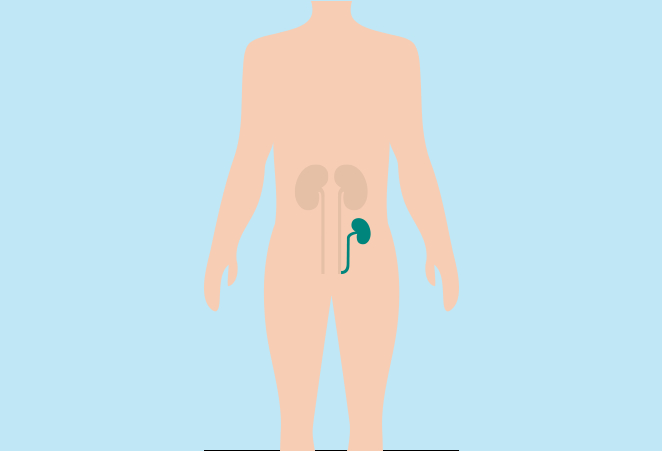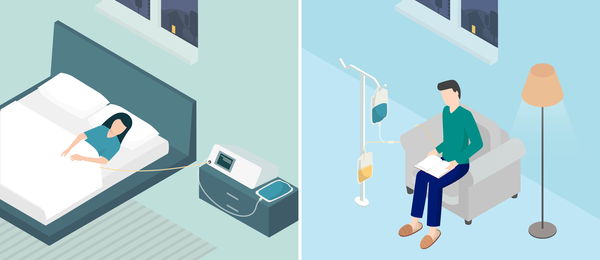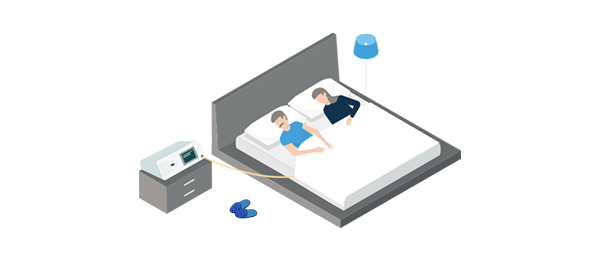Kidney transplant

What is a kidney transplant?
A kidney transplant is a surgical operation where a healthy kidney from a donor is placed in your body. This new kidney will filter your blood and remove excess fluids the way your own two kidneys would if they were healthy. A successful kidney transplant is the most effective treatment for chronic kidney disease (CKD) because it can substitute almost completely the lost kidney function and allow you to lead a normal life. However, not all patients are suitable candidates for a kidney transplant and you will need to discuss with your doctor if you may be suitable.
Types of kidney transplant
Living donations
A healthy kidney can be surgically removed from a living donor and transplanted into you. A living kidney donor can be a relative, friend, spouse, or anybody else who is willing to donate. Ideally, they need to be the same blood group and a tissue match for you but if they are not, there is the possibility of entering the Australia New Zealand Paired Kidney Exchange program. The program matches incompatible donor and recipient pairs with other incompatible pairs across Australia and New Zealand.
Deceased donations
If you are not able to get a donation from a living kidney donor, you can undergo a series of tests to see if you qualify to be placed on the deceased-donor waiting list. Your clinician will help guide you through this process. Most countries have a centralised organisation that manages this process and helps patients navigate the system. In New Zealand the NZ Renal Transplant Service and NZ blood service are responsible for this.

Who can receive a kidney transplant?
The success of a kidney transplant depends on a variety of factors. If your overall health is good, your clinician may decide that you’re an ideal candidate for a kidney transplant and will recommend that you are put on the kidney transplant waiting list, or explore any living donors, such as family members.
In Aotearoa New Zealand, being listed for a deceased donor kidney transplant is based on a scoring system which looks at how well you are, how old you are and if you have other health issues that would limit your suitability for a kidney transplant.

How likely is a kidney transplant to be successful?
For your kidney transplant to succeed, the healthy kidney must come from a donor whose blood and tissue types are compatible with yours. It is also beneficial if the donor’s genetic characteristics are similar to your own. The success rate after a kidney transplant with a living-donor kidney is reported by ANZDATA as over 94% of transplants working a year later1.

What happens after kidney transplant?
After you’ve received a kidney transplant, you are likely to remain in the hospital to recover for a few days. Early on after your surgery you may expect to experience soreness around the incision site and throughout your abdomen. The status of your kidney transplant will be monitored carefully by your care team. You will be given immunosuppressants to prevent your immune system from rejecting the transplanted kidney as a “foreign object it. You will also need to take other medication to reduce your risk of infection, You will need to take the immunosuppressants long term and you may also require treatment for high blood pressure after your transplant.

Benefits of a kidney transplant
A successful kidney transplant may allow you to live a longer and higher quality of life than while you were on dialysis. You will no longer need to receive dialysis treatments or restrict your diet as much as you had before. Some chronic kidney disease patients may need more than one kidney transplant in their lifetime.
Possible risks of a kidney transplant
Although kidney transplants can be an extremely effective treatment for CKD, there are risks. Like with any other operation, your body may have difficulty recovering and you may experience complications, including:
- Your body may reject the new organ, and you will need to take immunosuppressive medications to prevent organ rejection. These medications can take a while to get used to and may require you to make multiple visits to the hospital.
- Your new kidney may not function properly at first. You may still need to remain on dialysis until your new kidney starts to work.
- Your new kidney may fail immediately (though not common), or at any time after your transplant. You must be mentally and physically prepared to receive a new transplant or start dialysis if this happens.
Before you receive your kidney transplant, do consult your doctor about the potential risks of a kidney transplant operation.
Subscribe to My Kidney Journey Newsletter
Sign up now to receive exclusive content on kidney disease, treatment options, lifestyle tips and inspiring patient stories.
Where to go next?

Peritoneal dialysis (PD) at home
Peritoneal dialysis (PD) is a type of dialysis which can be done at home. We explain more on PD.

Continuous ambulatory peritoneal dialysis (CAPD)
CAPD can be performed at work, home or during travel.

